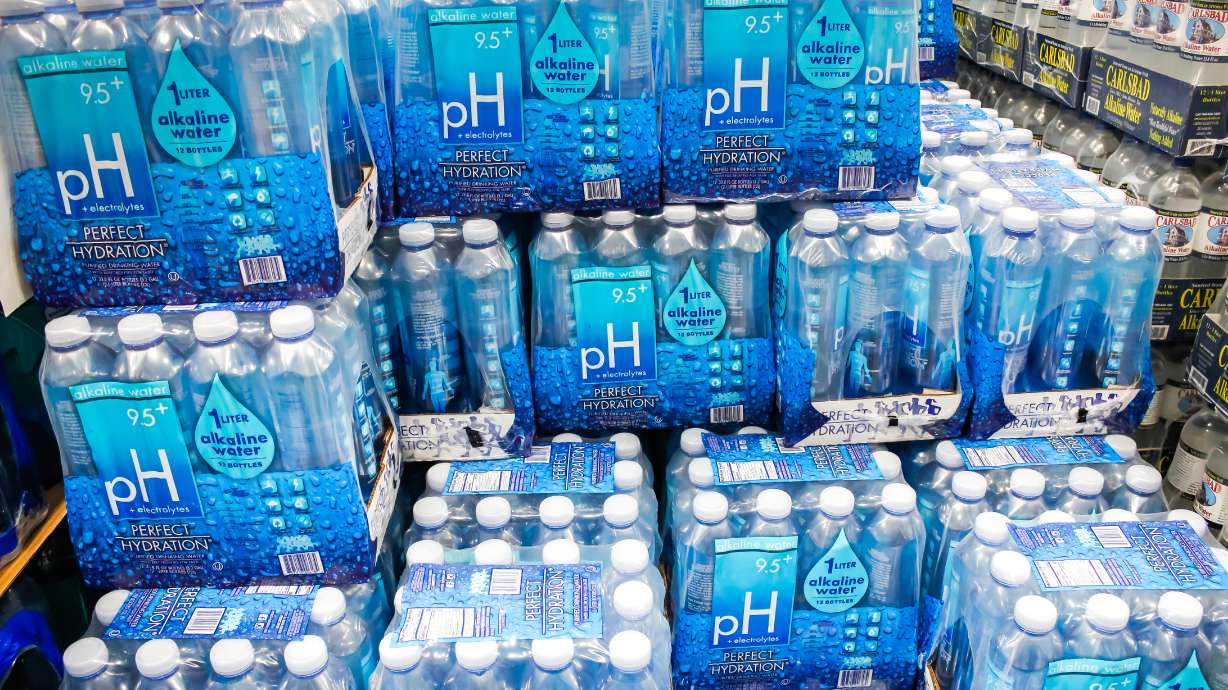Estimated read time: 3-4 minutes
This archived news story is available only for your personal, non-commercial use. Information in the story may be outdated or superseded by additional information. Reading or replaying the story in its archived form does not constitute a republication of the story.
SALT LAKE CITY — The U.S. Environmental Protection Agency, Utah drinking water regulators and public delivery systems are reassuring residents that water from the tap is safe to drink, even as crowds scramble to stock up on bottled water supplies amid the coronavirus pandemic.
Conventional water treatment and disinfection removes any viruses like COVID-19 and boiling water is not necessary, according to government officials.
The EPA has released an online document to answer questions the public might have, including information from the World Health Organization that risk to drinking water supplies is low.
“Drinking water treatment and disinfection has effectively protected Utah’s population for many decades. These protections will safeguard residents against drinking-water-borne viral infections — including coronavirus,” said Marie Owens, director of the Utah Department of Environmental Quality’s Division of Drinking Water.
The Central Utah Water Conservancy District also said it has put a plan in place to ensure water deliveries are not reduced should there be diminished staffing or a reduced availability of chemical supplies.
“It is part of Central Utah’s mission to plan for the future, including plans for emergency situations and unforeseen circumstances,” said Gene Shawcroft, the district’s general manager.
The Salt Lake City Department of Public Utilities has information on its website to advise customers. While it is best practice, for example, to have a four-day supply of water on hand in the event of a natural disaster, the department said it is not necessary to stockpile water due to the coronavirus.
Related:
The department added there is no data to suggest any incidences of water-borne transmission.
“Even in the event of a large, local outbreak of the virus, our water, sewer and stormwater systems would remain operational. This is due to proactive continuity of operations planning,” the department said.
Due to a proclamation issued last week by Salt Lake City Mayor Erin Mendenhall, the department will not suspend water service due to nonpayment as the city continues to battle the outbreak.
Drinking water systems and wastewater systems are completely separate, but the coronavirus could present a challenge for sewage treatment plants.
With the shortage of toilet paper, there may be some consequences to treatment plants if there is an influx of paper towels, flushable wipes — which really aren’t flushable — and facial tissue, which has a soft and silky surface that makes them harder to dissolve.
Flushing those items could result in expensive home repairs and costly fixes to treatment plants.
Just remember the last thing you want is to have sewer backup in your home if you start flushing these things down the toilet.
–Jill Jones, manager of the Central Davis Sewer District
The Wasatch Front Water Quality Council, in fact, brought the issue to the attention of the state Legislature even before the coronavirus outbreak.
Council members urged caution through its “Toilets Are Not Trash Cans” campaign, asserting it could be a $3 million problem of clogged lines and ruined pumps at treatment facilities throughout the state.
Jill Jones, manager of the Central Davis Sewer District, said she is concerned that as people turn to other products in light of the toilet paper shortage, there could be stinky, and unhealthy, consequences.
“Just remember the last thing you want is to have sewer backup in your home if you start flushing these things down the toilet,” she said.
“We are concerned about it."











